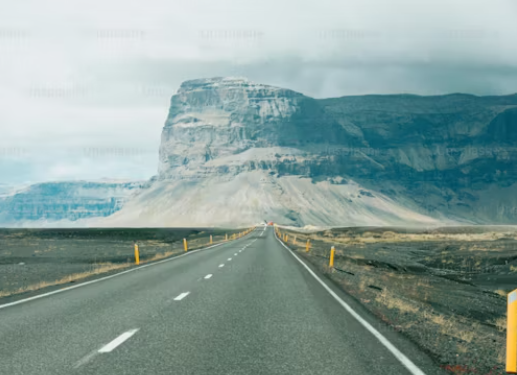Solo travel can be an incredibly rewarding experience, allowing you to explore new destinations at your own pace and on your own terms. However, traveling alone also comes with its own set of challenges and safety concerns. Whether you’re embarking on your first solo adventure or are a seasoned solo traveler, it’s essential to prioritize your safety above all else. Here are some tips to help you stay safe while exploring the world alone.
1. Introduction
Traveling alone can be an empowering and liberating experience, but it’s important to prioritize safety and security while on the road. From researching your destination to staying connected with loved ones back home, here are some essential tips for solo travel safety.
2. Research Your Destination
Before embarking on your solo adventure, take the time to research your destination thoroughly. Familiarize yourself with local customs, traditions, and laws to avoid inadvertently offending locals or breaking any rules. Understanding the cultural context of your destination will help you navigate unfamiliar situations with confidence.
3. Share Your Itinerary
Always share your travel itinerary with a trusted friend or family member before you leave. Provide them with detailed information about your travel plans, including flight details, accommodation bookings, and any activities or excursions you have planned. In the event of an emergency, having someone back home who knows your whereabouts can be invaluable.
4. Stay Connected
Maintaining regular communication with family and friends back home is essential for solo travelers. Keep them updated on your whereabouts and activities, and check in with them regularly to let them know you’re safe. Utilize technology such as smartphones, social media, and messaging apps to stay connected even when you’re far from home.
5. Trust Your Instincts
One of the most important skills for solo travelers is learning to trust your instincts. If something feels off or doesn’t seem right, trust your gut feelings and remove yourself from the situation. Avoid risky or dangerous situations whenever possible, and prioritize your safety above all else.
6. Choose Safe Accommodations
When selecting accommodations for your trip, prioritize safety and security. Choose reputable hotels, hostels, or guesthouses with positive reviews and a track record of providing a safe environment for guests. Consider factors such as location, security measures, and access to transportation when making your decision.
7. Stay Aware of Your Surroundings
Stay vigilant and aware of your surroundings at all times, especially in crowded or unfamiliar places. Keep an eye out for any suspicious behavior or individuals, and trust your instincts if you feel unsafe. Avoid walking alone at night in poorly lit or deserted areas, and be cautious when accepting offers of assistance from strangers.
8. Keep Your Valuables Secure
Keep your valuables such as passports, cash, and electronics secure at all times. Invest in a money belt or hidden pouch to carry your valuables discreetly, and avoid flashing expensive items or carrying large sums of cash in public. Keep important documents locked in a safe or secure location when not in use.
9. Learn Basic Self-Defense
Consider taking a self-defense class before your trip to learn basic techniques for protecting yourself in dangerous situations. Knowing how to defend yourself can give you confidence and peace of mind while traveling alone, and may help you escape potentially dangerous situations unharmed.
10. Blend In with the Locals
To avoid drawing unwanted attention to yourself, try to blend in with the locals as much as possible. Dress modestly and conservatively, and avoid wearing flashy jewelry or expensive clothing that may attract thieves or scammers. Respect local customs and traditions, and be mindful of your behavior in public.
11. Avoid Excessive Drinking
While it’s tempting to let loose and indulge in the local nightlife while traveling, it’s important to drink responsibly, especially when traveling alone. Limit your alcohol consumption and stay sober enough to make smart decisions and keep yourself safe. Avoid accepting drinks from strangers, and never leave your drink unattended.
12. Stay Informed About Local Laws
Before your trip, familiarize yourself with the local laws and customs of your destination to avoid inadvertently breaking any rules. Research common scams or tourist traps to watch out for, and be mindful of your behavior to avoid offending locals or authorities. When in doubt, err on the side of caution and follow local customs and regulations.
13. Stay Healthy
Maintaining your health and well-being is essential for solo travelers. Pack necessary medications and supplies for any pre-existing conditions, and take precautions to prevent illness or injury while traveling. Practice good hygiene, stay hydrated, and avoid risky activities that may compromise your health or safety.
14. Stay In Touch With Embassy or Consulate
Before your trip, make a note of the location and contact information of your country’s embassy or consulate in your destination. In case of emergencies or if you need assistance while traveling, contact them for guidance and support. Register with your embassy or consulate online before your trip to receive updates and alerts about safety concerns or emergencies in your destination.
Conclusion
Traveling alone can be a transformative and enriching experience, but it’s important to prioritize safety and security while on the road. By following these tips and staying vigilant, solo travelers can explore the world with confidence and peace of mind. Remember to trust your instincts, stay connected with loved ones back home, and prioritize your safety above all else. With careful planning and awareness, solo travel can be a safe and rewarding adventure.

FAQs
1. Is it safe to travel alone as a solo traveler?
- While traveling alone can be safe, it’s important to take precautions and stay vigilant to ensure your safety. Research your destination, trust your instincts, and stay connected with loved ones back home to minimize risks.
2. How can I stay safe while exploring unfamiliar destinations?
- Stay aware of your surroundings, avoid risky situations, and trust your instincts. Choose safe accommodations, keep your valuables secure, and avoid excessive drinking to minimize risks while exploring unfamiliar destinations.
3. What should I do if I feel unsafe while traveling alone?
- If you feel unsafe while traveling alone, trust your instincts and remove yourself from the situation. Seek assistance from locals or authorities if needed, and contact your embassy or consulate for guidance and support.
4. How can I avoid attracting unwanted attention while traveling alone?
- To avoid drawing unwanted attention to yourself, blend in with the locals by dressing modestly and conservatively. Avoid flashy jewelry or expensive clothing, and be mindful of your behavior in public to minimize risks.
5. What should I do in case of emergencies while traveling alone?
- In case of emergencies while traveling alone, stay calm and seek assistance from locals or authorities. Contact your embassy or consulate for guidance and support, and keep loved ones back home informed of your whereabouts and situation.








